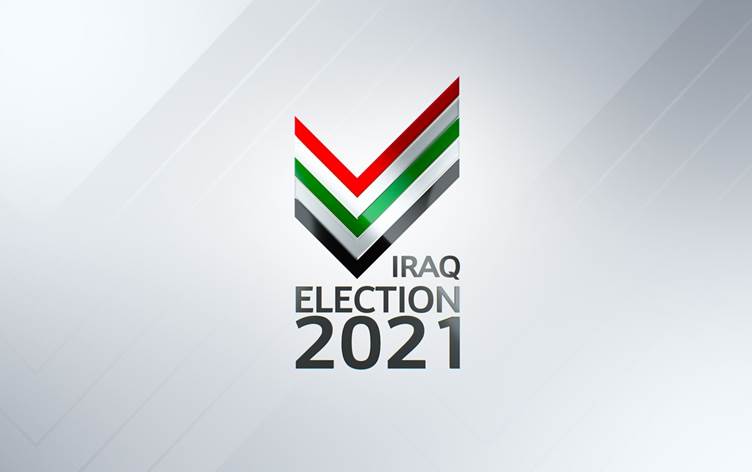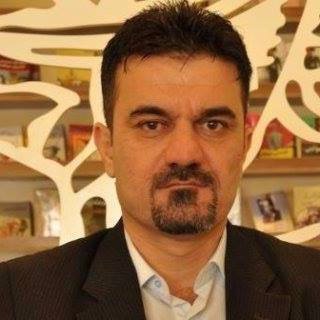The often-hazardous two-year struggle that led to this vote has left many of the youth movement’s most ardent supporters disillusioned with the electoral process entirely, so Washington will have to narrow its focus.
When Iraqis head to the polls for an early election on October 10, they will have the Tishrin protest movement to thank. Unfortunately, large portions of the movement itself will not participate, highlighting the persistent gaps between the country’s realities and its democratic processes.
The mass protest movement first swept across central and southern Iraq in October 2019, forcing the government to swap leaders and commit to broad changes in the electoral system. The so-called “Tishrinis”—named after the Arabic word for October—were protesting the government that emerged from the 2018 election, which they correctly identified as corrupt, ineffective, and far too beholden to Iran and its extensive network of Iraqi Shia militia proxies. Although that vote had lent a veneer of democratic legitimacy to the government and provided some factions with access to the state’s well-oiled coffers, it failed to bring stability, jobs, and accountable governance. Iraqi youths therefore resorted to persistent protests as an alternative form of politics.
Initial high hopes for electoral reform have since given way to cynicism among the Tishrinis, many of whom are expected to boycott this weekend’s vote. For its part, the United States likely hoped that the protests would lead to a stable, sovereign government capable of tackling corruption and reining in Iran’s militia network. Although those goals seem largely out of reach for this election cycle, Washington still has an important long-term role to play—not in trying to cherry-pick Iraq’s leaders, but in steadily pushing for the accountability and transparency that the people need to build a better government.
Why Is Iraq’s Political Status Quo So Durable?
The elaborate power-sharing mechanisms codified in Iraq’s constitution, layered on top of religious/ethnic identity politics and an oil-based rentier economy, have been effective in preventing the rise of a new Saddam-like dictator. Yet the resulting big-tent coalition governments have failed to govern, generally choosing to dole out patronage instead. Moreover, after the war against the Islamic State, militias quickly branded themselves as Iraq’s liberators and rode this popularity into parliamentary victories in 2018. The government subsequently exacerbated the country’s instability and corruption, and the public suffered. When mass protests broke out in 2019, unarmed civilians quickly met with brutal violence that led to over 600 deaths and nearly 10,000 injuries. They nonetheless managed to push through two of their key demands: ousting Prime Minister Adil Abdulmahdi and getting his successor, Mustafa al-Kadhimi, to commit to early elections.
Today, however, many protestors feel let down. As long as pressure from the streets continued, the governing class offered concessions, such as passing a new law in December 2019 that made sweeping changes to the election system. Yet once the pressure waned amid the COVID-19 pandemic, those in power breathed a sigh of relief and embarked on shoring up the status quo, in part by impeding or greatly delaying various reform measures. For example, parliament took nearly a year to agree on dividing Iraq’s eighteen provinces into eighty-three new electoral districts. Although this change was intended to boost local accountability, the parties in charge of the process used it to gerrymander districts in their favor.
Worse, many activists, journalists, and potential election candidates have become sitting ducks in a vicious assassination campaign. In May, the Washington Post reported that at least thirty-four had been killed since the start of the protests and another eighty-one had been targeted, citing UN figures. With few exceptions, the perpetrators remain at large. These attacks, coupled with the massive financial imbalance between the protest movement and the parties in power, have made it nearly impossible for the opposition to run viable campaigns.
Accordingly, the election will likely result in another fragmented parliament, followed by opaque, corrupt horse-trading among factions to form the next government. The Fatah Alliance, the bloc representing many Iran-backed Shia militias, is poised to retain most of its 48 seats in the 329-seat parliament. And in a brazen breach of Article 9 of the constitution, which prohibits armed personnel from running for office, the U.S.-designated terrorist group Kataib Hezbollah is fielding candidates under the Harakat Hoquq (Rights Movement) list. Iranian militia proxies Asaib Ahl al-Haq and the Badr Organization had already done the same. The rise of militias with political arms is a dire regression in Iraq’s democratic politics.
The list fielded by Muqtada al-Sadr, traditionally the heavyweight of Iraq’s Shia bloc, may gain seats as well, but he is unlikely to win enough to dominate the Shia political scene. If he and Fatah disagree on any future parliamentary votes, the most likely tiebreakers will be entrenched political elites who have inherited control over Iraq’s traditional parties, including former prime minister Haider al-Abadi, former Najaf governor Adnan al-Zurfi, and former head of the Islamic Supreme Council of Iraq (ISCI) Ammar al-Hakim. Most of the campaign platforms voiced by the dominant factions have been tone deaf to the public’s demands, leading many Iraqis to expect a repeat of 2018. And in a clear reversion to tried-and-true patronage politics, the Popular Mobilization Forces promised to hire 30,000 fighters back into its ranks in the weeks leading up to the vote.
In Kurdistan, the election might spell the end of opposition from small parties. The Patriotic Union of Kurdistan (PUK) has teamed up with the largest opposition group, Gorran, to make up for its current leadership crisis and deny the Kurdistan Democratic Party (KDP) a resounding victory. A few vocal, independent Kurdish parliamentarians may make it to Baghdad. Similarly, two main alliances are competing for seats in Iraq’s predominantly Sunni provinces—Taqaddum led by speaker of parliament Mohammed al-Halbousi, and Azm led by businessman Khamis al-Khanjar. Far from being kingmakers, the Sunni and Kurdish parties will have to align with the Shia victors in order to be part of the next government. Overall, the new parliament will have a higher number of independent candidates, but they will likely be up for grabs by the winning blocs rather than forming blocs of their own.
Protests as Parallel Politics
Few expect this election to amount to more than a game of musical chairs, and the Tishrin movement’s core demands—curbing systemic corruption, creating jobs, and holding armed groups accountable—are unlikely to be met. These demands are popular across a wide swath of the political spectrum: in recent polling by the Enabling Peace in Iraq Center, 70% of respondents were “somewhat” or “very” supportive of the protest movement, and 80% mentioned corruption as one of Iraq’s biggest problems—nearly ten times more than the number who mentioned the Islamic State (8.8%) or healthcare/COVID issues (5.9%). The poll also showed low confidence in the electoral process despite an international monitoring program—only 23% of respondents believed the vote would be “somewhat” or “very” free and fair. To counter such perceptions, Grand Ayatollah Ali al-Sistani has encouraged participation in order to boost turnout, which dropped from 61% to 44% between 2014 and 2018.
Practically disenfranchised, younger Iraqis have little chance of making it to office in a political system that favors the rich and the vicious. Their response to this dilemma is far from monolithic—some of the Tishrini protestors are still running in this election after all. Yet many others are sitting it out or calling for a mass boycott. Hence, protests and sit-ins seem destined to remain a parallel form of politics in Iraq indefinitely. Rather than transition into party politics, many figures are choosing not to play by rules that are rigged against them. In their view, the best way to pressure the system is from the outside—for example, by vetoing candidates for the top jobs, as they did in 2020 when Abdulmahdi’s interim successor was being selected.
Policy Implications
As the United States transitions its military presence in Iraq to a more limited non-combat mission by early 2022, it will find itself with less leverage to influence electoral politics. Therefore, Washington should focus its limited resources on a narrow, achievable set of goals as outlined in the U.S.-Iraq Strategic Framework Agreement.
In the immediate term, U.S. officials should continue pushing for credible elections through UN monitoring. If Iraqis feel confident that their votes count and rules are being followed, then they are more likely to participate in future elections. Yet given the persistent militia penetration of party politics, Washington should acknowledge that elections do not constitute the sole source of legitimacy in Iraq. In the next parliament, militia members will presumably resurrect the longstanding demand that Baghdad sever its security partnership with Washington completely, but the country’s senior political and military leadership do not share this view.
For these and other reasons, the United States should gradually refocus its energy on backing—and making asks of—the Iraqi state rather than individual politicians or groups. The people would especially welcome anti-corruption efforts, banking reforms, and measures that deny electoral legitimacy to individuals who are complicit in the murder of opposition activists. If Washington can lead an international and regional effort to help Iraq solve these problems, it will boost America’s local image, strengthen the Iraqi state, and check Iran’s increasingly lawless militia network.
Bilal Wahab is the Wagner Fellow at The Washington Institute. Calvin Wilder is a research assistant in the Institute’s Geduld Program on Arab Politics.
Source: The Washington Institute for Near East Policy, October 6, 2021
Elections Without Democracy in Iraq? | The Washington Institute








Comment here